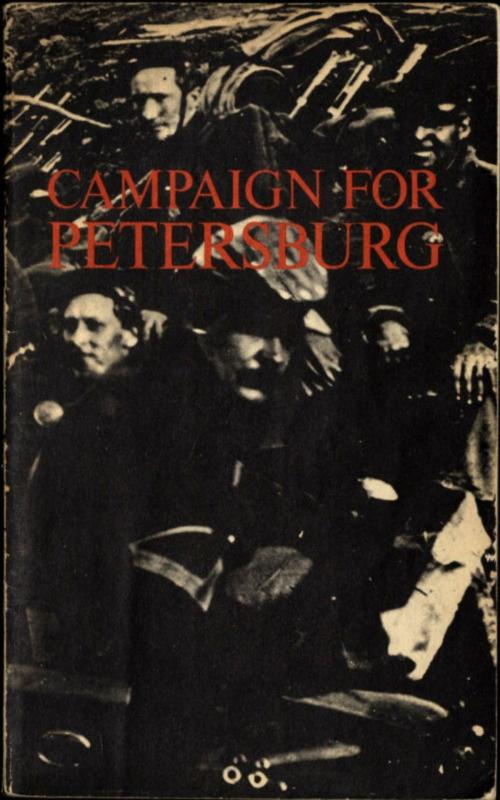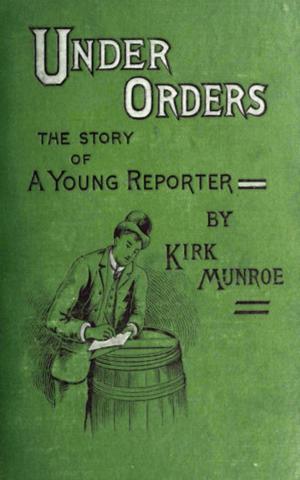| Author: | Richard Wayne Lykes | ISBN: | 9783736415454 |
| Publisher: | anboco | Publication: | September 26, 2016 |
| Imprint: | Language: | English |
| Author: | Richard Wayne Lykes |
| ISBN: | 9783736415454 |
| Publisher: | anboco |
| Publication: | September 26, 2016 |
| Imprint: | |
| Language: | English |
By June 1864, when the siege of Petersburg began, the Civil War had lain heavily on both the North and the South for more than 3 years. Most of the fighting in the East during this period had taken place on the rolling Virginia countryside between the opposing capitals of Washington and Richmond, only 110 miles apart, and all of it had failed to end the war and bring peace to the land. Various generals had been placed in command of the Union's mighty Army of the Potomac and had faced Gen. Robert E. Lee's Army of Northern Virginia. So far not one had succeeded in destroying Lee's army or in capturing Richmond. Perhaps Maj. Gen. George B. McClellan had come the closest to success when, in the late spring and early summer of 1862, his Northern troops had threatened the Confederate capital, only to be repulsed on its outskirts. The other Northern commanders who followed McClellan—Pope, Burnside, Hooker, and Meade—were less successful. Lee had met and turned aside their drives. After 36 months of bitter conflict the war in the East seemed, to many observers, to be far from a final settlement. The failure of Union forces to deliver a decisive blow against the Army of Northern Virginia was a source of growing concern in Washington. The Confederacy, for its part, was no more successful in settling the issue. Attempted invasions of the Northern States by Lee were turned back at Antietam in September 1862 and at Gettysburg in July 1863. Farther west the picture was brighter for Northern hopes. In the same month as the Battle of Gettysburg, the Confederate stronghold of Vicksburg, Miss., fell into Union hands. A few days later, Port Hudson, La., the last remaining stronghold of the Confederacy on the banks of the Mississippi River, surrendered. Later in 1863, the Union capture of Chattanooga, Tenn., threw open the gateway to Georgia.
By June 1864, when the siege of Petersburg began, the Civil War had lain heavily on both the North and the South for more than 3 years. Most of the fighting in the East during this period had taken place on the rolling Virginia countryside between the opposing capitals of Washington and Richmond, only 110 miles apart, and all of it had failed to end the war and bring peace to the land. Various generals had been placed in command of the Union's mighty Army of the Potomac and had faced Gen. Robert E. Lee's Army of Northern Virginia. So far not one had succeeded in destroying Lee's army or in capturing Richmond. Perhaps Maj. Gen. George B. McClellan had come the closest to success when, in the late spring and early summer of 1862, his Northern troops had threatened the Confederate capital, only to be repulsed on its outskirts. The other Northern commanders who followed McClellan—Pope, Burnside, Hooker, and Meade—were less successful. Lee had met and turned aside their drives. After 36 months of bitter conflict the war in the East seemed, to many observers, to be far from a final settlement. The failure of Union forces to deliver a decisive blow against the Army of Northern Virginia was a source of growing concern in Washington. The Confederacy, for its part, was no more successful in settling the issue. Attempted invasions of the Northern States by Lee were turned back at Antietam in September 1862 and at Gettysburg in July 1863. Farther west the picture was brighter for Northern hopes. In the same month as the Battle of Gettysburg, the Confederate stronghold of Vicksburg, Miss., fell into Union hands. A few days later, Port Hudson, La., the last remaining stronghold of the Confederacy on the banks of the Mississippi River, surrendered. Later in 1863, the Union capture of Chattanooga, Tenn., threw open the gateway to Georgia.















